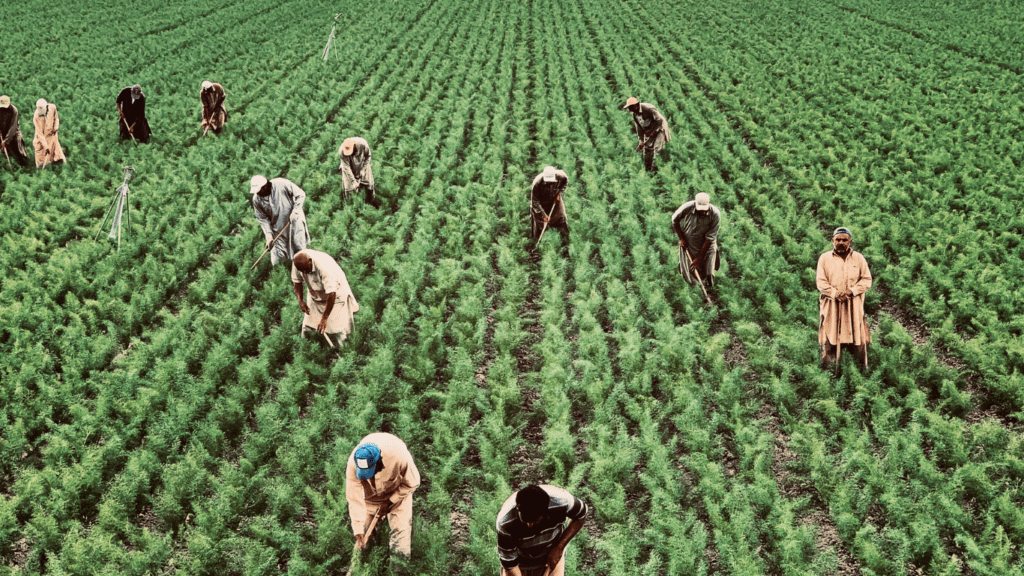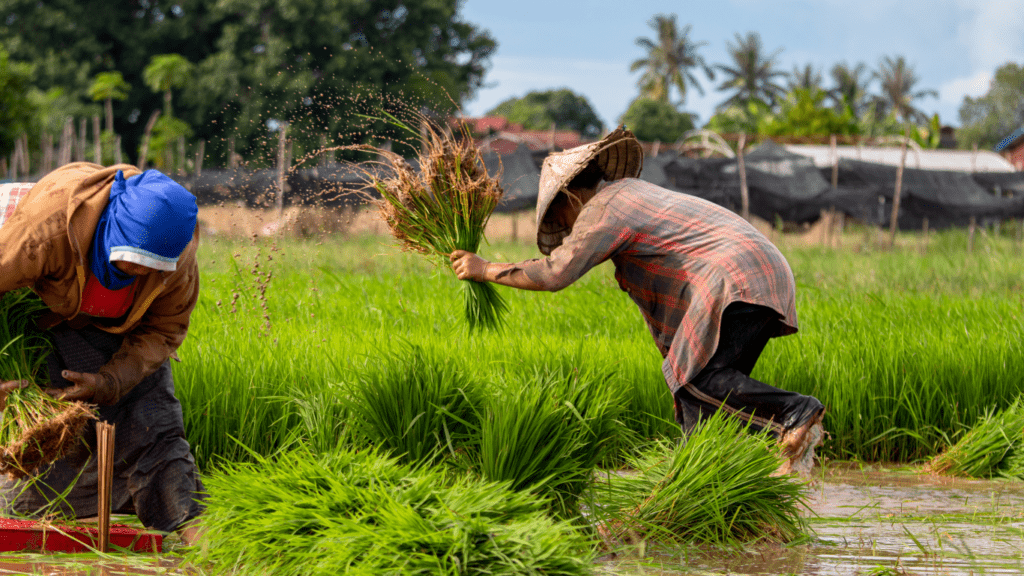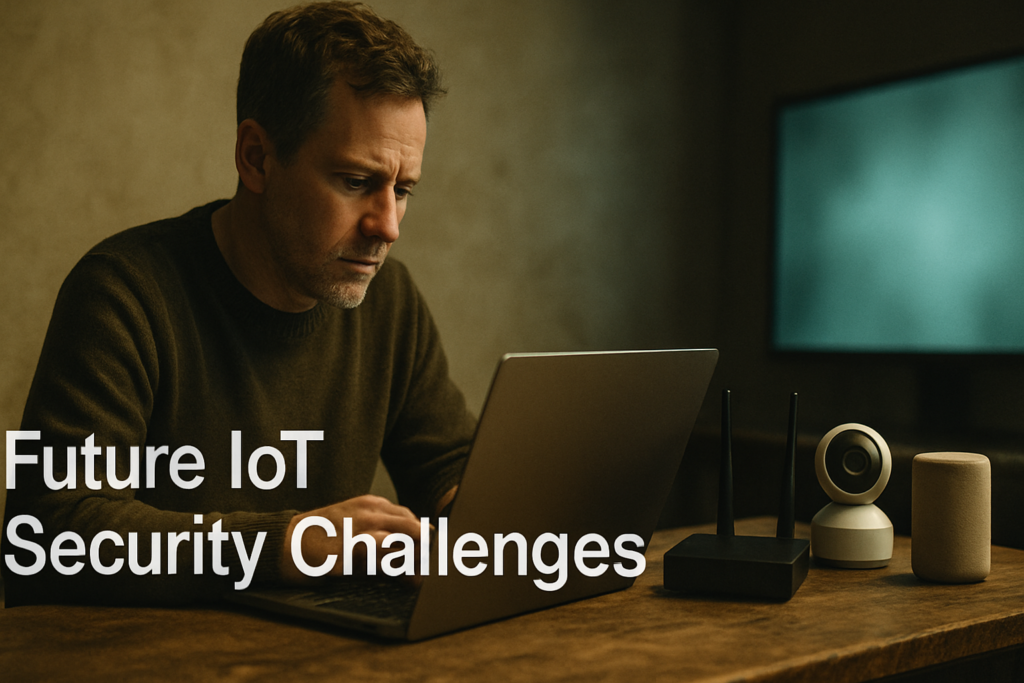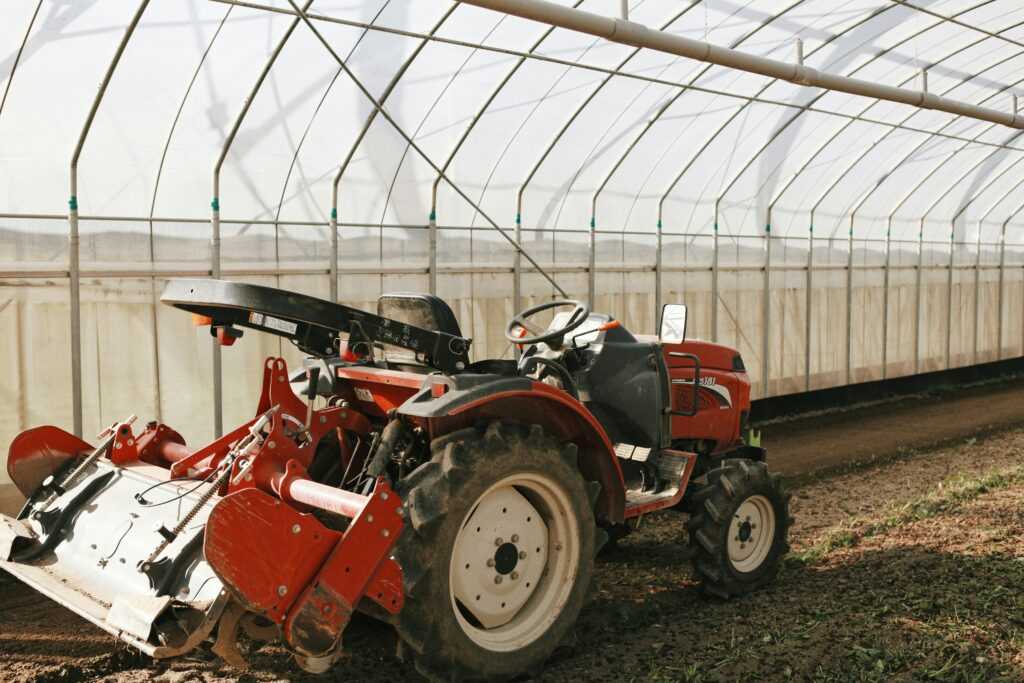In the realm of modern agriculture, the integration of IoT technology has revolutionized traditional farming practices, paving the way for enhanced precision farming techniques. As I delve into the realm of IoT in agriculture, I uncover the myriad ways in which smart devices and sensors are reshaping the landscape of farming. From monitoring soil conditions to optimizing water usage, IoT solutions offer farmers invaluable insights to boost productivity and sustainability.
Through my exploration of IoT applications in agriculture, I aim to shed light on the transformative power of data-driven decision-making in enhancing crop yields and minimizing environmental impact. Join me on this journey as we unravel the potential of IoT technologies to revolutionize the future of farming, making it smarter, more efficient, and ultimately more sustainable.
Overview of IoT in Agriculture
Exploring the realm of IoT in agriculture unveils a landscape where cutting-edge technology intertwines with traditional farming methodologies. Integrated with a network of smart devices and sensors, IoT revolutionizes farming by enabling precision agriculture practices. This transformation is not merely a shift in operations but a gateway to a future where data reigns supreme in decision-making processes. The fusion of technology and agriculture empowers farmers to monitor soil conditions, optimize water utilization, and unlock valuable insights that drive productivity and sustainability.
The essence of IoT in agriculture lies in its ability to collect and analyze data in real-time, offering farmers a comprehensive understanding of their fields. By harnessing a plethora of sensor data, farmers can make data-driven decisions that optimize crop growth, minimize resource wastage, and mitigate environmental impact. The seamless integration of IoT devices creates a web of interconnected information sources, enriching the farming experience with actionable intelligence. The future of agriculture is unfolding before our eyes, shaped by the transformative power of IoT technology.
Importance of Precision Farming
Precision farming plays a crucial role in modern agriculture, harnessing the power of IoT for enhanced efficiency and productivity. By leveraging smart devices and sensors, farmers can collect and analyze real-time data to make informed decisions and optimize their crop management strategies. This approach minimizes resource wastage and maximizes output, leading to improved sustainability and profitability in farming practices.
Increased Efficiency and Productivity
Incorporating IoT in agriculture streamlines farming operations, leading to increased efficiency throughout the cultivation process. By utilizing sensor data to monitor soil conditions, water usage, and crop health, farmers can implement targeted interventions and adjustments, ultimately boosting productivity. This precision-driven approach enables farmers to optimize resource allocation, improve crop quality, and increase overall yield, contributing to a more sustainable and profitable agricultural sector.
Resource Optimization
One key advantage of precision farming powered by IoT is resource optimization. Through continuous monitoring and analysis of environmental factors and crop data, farmers can accurately allocate resources such as water, fertilizers, and pesticides where they are needed most. This optimized resource management not only reduces waste but also ensures that inputs are utilized effectively, leading to cost savings and environmental sustainability. By fine-tuning resource allocation based on real-time insights, farmers can achieve higher crop yields while minimizing their ecological footprint.
Implementation of IoT in Agriculture
In leveraging IoT for agriculture, sensor technology plays a pivotal role in data collection and monitoring crucial factors for crop growth.
Sensor Technology
I use various types of sensors like moisture sensors, weather stations, and drones to gather real-time data on soil moisture levels, temperature, humidity, and crop health.
Data Analysis and Insights
I analyze the data collected by sensors to gain valuable insights into soil conditions, crop growth patterns, and pest infestations, allowing me to make data-driven decisions for optimizing farm operations.
Automation and Control Systems
I integrate IoT devices to automate irrigation systems, nutrient delivery, and pest control mechanisms, enabling precise and timely actions based on the analyzed data.
Connectivity and Communication
I ensure seamless connectivity between devices and data platforms to transmit information efficiently, facilitating remote monitoring and control of agricultural processes.
Scalability and Integration
I design IoT solutions that are scalable and easily integrated with existing farming practices, ensuring a smooth transition to precision agriculture without disrupting current operations.
Benefits of IoT in Precision Farming
Empowering Precision Decisions: IoT in precision farming offers real-time data insights to make informed decisions regarding crop management, irrigation, and pest control. It allows me to optimize resource allocation based on accurate information, leading to improved crop health and yield.
Enhancing Efficiency and Productivity: By integrating IoT devices and sensors, precision farming maximizes efficiency in resource usage like water, fertilizers, and pesticides. I can closely monitor soil conditions and crop health, enabling targeted interventions and minimizing wastage, ultimately boosting productivity on the farm.
Minimizing Environmental Impact: The data-driven approach of IoT in agriculture helps me minimize the environmental footprint by optimizing resource utilization. With precise monitoring of water usage, soil health, and crop conditions, I can reduce chemical runoff, water wastage, and unnecessary application of inputs, contributing to sustainable farming practices.
Improving Crop Yields: IoT technology enables me to enhance crop yields through precise monitoring and management. By leveraging IoT data for crop health analysis, timely irrigation, and optimized nutrient application, I can achieve higher yields and better quality produce, meeting market demands efficiently.
Facilitating Remote Monitoring and Control: IoT devices in precision farming allow me to remotely monitor and control farm operations from anywhere. Whether adjusting irrigation schedules, monitoring crop conditions, or detecting pest infestations, IoT provides me with the flexibility and accessibility to manage farm activities effectively.
Enabling Predictive Maintenance: Through IoT sensors, I can implement predictive maintenance practices for farm equipment and machinery. By tracking performance metrics and detecting issues in advance, I can prevent costly breakdowns, ensure equipment longevity, and maintain seamless farm operations.
Streamlining Data Management: IoT integration simplifies data collection, storage, and analysis in precision farming. I can streamline the management of vast amounts of agricultural data, including soil moisture levels, weather patterns, and crop growth metrics, to derive actionable insights for optimizing farm practices and decision-making.
Fostering Innovation and Scalability: The implementation of IoT technologies in precision farming fosters innovation and scalability in agricultural operations. By adopting smart farming solutions, I can continuously improve practices, explore new technologies, and scale operations efficiently to meet evolving market demands and agricultural challenges.
Challenges and Limitations
In precision agriculture utilizing IoT technology, there are several challenges and limitations that farmers and stakeholders need to address for successful implementation and operation.
- High Initial Investment: Implementing IoT solutions in agriculture requires a significant upfront investment in smart devices, sensors, connectivity infrastructure, and data analytics platforms. This initial cost can be a barrier for small-scale farmers or those with limited resources.
- Complexity of Integration: Integrating various IoT devices, sensors, and data management systems into existing farm operations can be complex and time-consuming. It may require technical expertise or additional training for farmers to effectively utilize these technologies.
- Data Privacy and Security Concerns: With the collection of vast amounts of data through IoT devices, there are concerns about data privacy and security. Safeguarding sensitive farm data from cyber threats and unauthorized access is crucial to maintain the integrity of the system.
- Reliability and Connectivity Issues: IoT devices rely on stable internet connectivity to transmit data and receive commands. In rural areas where internet connectivity may be limited or unreliable, ensuring seamless communication between devices can be a challenge.
- Maintenance and Support: Regular maintenance of IoT devices, software updates, and technical support are essential for the smooth operation of precision farming systems. Farmers need to have access to reliable support services to address any issues promptly.
- Data Interpretation and Decision-making: Analyzing the vast amount of data collected by IoT sensors and translating it into actionable insights can be a daunting task. Farmers may require assistance in interpreting data patterns and making informed decisions based on the data generated.
- Scalability and Compatibility: As agricultural operations expand or evolve, ensuring the scalability and compatibility of IoT solutions with existing infrastructure and future technologies becomes crucial. Compatibility issues between different IoT devices and platforms can hinder seamless integration.
- Environmental Impact: While IoT in agriculture aims to reduce environmental impact through efficient resource management, there are concerns regarding the environmental footprint of manufacturing IoT devices, energy consumption, and electronic waste management.
Addressing these challenges and limitations through strategic planning, adequate training, cybersecurity measures, and ongoing technical support can help maximize the benefits of IoT in precision agriculture while mitigating potential risks.


 Christopher Crick is a valued helper at The Code Crafters Hub, where he plays a crucial role in building and enhancing the platform. With a keen eye for detail and a deep understanding of software development, Crick has been instrumental in refining the site's features and ensuring that it delivers top-notch content to its users. His contributions range from technical support to content development, helping to shape the hub into a premier resource for software professionals and enthusiasts.
As a dedicated team member, Crick's efforts are focused on maintaining the high standards that The Code Crafters Hub is known for. His expertise in various aspects of technology ensures that the platform remains up-to-date with the latest advancements and trends. Located in Warren, MI, Crick's commitment to excellence supports the hub's mission to provide valuable insights into web development, game development, IoT, and cybersecurity.
Christopher Crick is a valued helper at The Code Crafters Hub, where he plays a crucial role in building and enhancing the platform. With a keen eye for detail and a deep understanding of software development, Crick has been instrumental in refining the site's features and ensuring that it delivers top-notch content to its users. His contributions range from technical support to content development, helping to shape the hub into a premier resource for software professionals and enthusiasts.
As a dedicated team member, Crick's efforts are focused on maintaining the high standards that The Code Crafters Hub is known for. His expertise in various aspects of technology ensures that the platform remains up-to-date with the latest advancements and trends. Located in Warren, MI, Crick's commitment to excellence supports the hub's mission to provide valuable insights into web development, game development, IoT, and cybersecurity.
